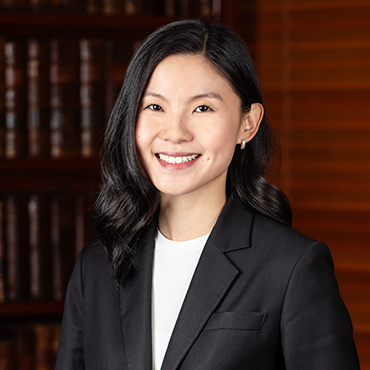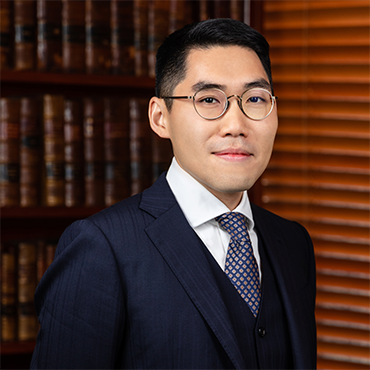Re Estate of Chan Fook Lai (Deceased) [2024] 1 HKLRD 29, [2023] HKCA 1177 (Lydia Leung)
Lydia Leung represented the plaintiff / respondent, and Jeff Yau represented the defendant / appellant, in Re Estate of Chan Fook Lai (Deceased) [2024] 1 HKLRD 29, [2023] HKCA 1177.
P, a son of the Testator and his executor, obtained summary judgment pronouncing for the force and validity of the Testator’s will in solemn form. Such summary judgment had been opposed at first instance, and was appealed against to the Court of Appeal, by D, who had entered a caveat, and was the Testator’s niece by marriage and had been brought up by him and his wife as a daughter. At first instance and on appeal, the issues were: (i) whether the Testator had testamentary capacity; (ii) whether he knew and approved of the contents of the will; and (iii) whether D’s counterclaim was a reason for the action to go to trial.
Held,dismissing D’s appeal, that:
- 1) Summary judgment could in principle be given in a probate action to propound a will in solemn form (Re Estate of Lau Siu Wah, deceased [2005] 1 HKC 364 applied). (See para.2.)
- 2) Summary judgment was for clear cases. Where a plaintiff had on his evidence established the constituent elements of his cause of action, it was for a defendant to show an issue in dispute that ought to be tried or that there ought for some other reason to be a trial. In setting up a defence, a defendant must condescend to particulars. The mere assertion in an affidavit of a given situation was not sufficient. Where a defendant had raised factual disputes, summary judgment may nevertheless be entered if that defendant’s allegations were not credible. But where the allegations could not be dismissed in that way, the court would not conduct a trial by affidavit. (See para.3.)
- 3) There was no merit in D’s argument that, since lack of testamentary capacity did not arise only from dementia, the Judge erred in concluding that there was no triable issue as to the Testator’s “mental defect or delusion” once he rejected D’s allegation of dementia. There was nothing wrong in the Judge focusing on the positive case raised by D, which was of dementia. Moreover, the Judge’s conclusion on testamentary capacity also rested on affirmation evidence and a medical report. (See para.35.)
- 4) Contrary to D’s argument, the Judge was right in regarding D’s allegations as bare assertions. She was obliged to, but did not, condescend to particulars. (See para.36.)
- 5) D argued that triable issues on the Testator’s testamentary capacity arose under the medical report’s reference to Parkinson’s disease, depressive neurosis and the drugs administered to the Testator. But that argument failed to take into account that testamentary capacity was a practical question to be approached by reference to the whole of the evidence, and not just the medical evidence, and with judicial common sense. On the whole of the evidence, no triable issue as to testamentary capacity had been made out by D (Re Estate of Lau Heung, deceased [2019] HKCA 769 applied). (See paras.37-48.)
- 6) Being based on essentially the same points as were raised on testamentary capacity, D’s argument on knowledge and approval failed for the same reasons. (See para.49.)
- 7) D’s reliance on the second rule in Barry v Butlin did not prevail on the evidence (Barry v Butlin (1838) 2 Moo PC 480, Re Estate of Lau Heung, deceased [2019] HKCA 769 considered; Cheung Wai Lan v Kwok Chung Chee (CACV 128/2014, [2015] HKEC 588) distinguished). (See paras.50-53.)
- 8) As for D’s argument that her counterclaim was a reason for the action to go to trial, it failed because the counterclaim did not concern the validity of the will, did not seek to propound any competing will, and did not require the determination of anything before summary judgment was entered on the claim (Choy Po Chun v Au Wing Lun [2012] 2 HKLRD 148 distinguished). (See paras.55-56.)



